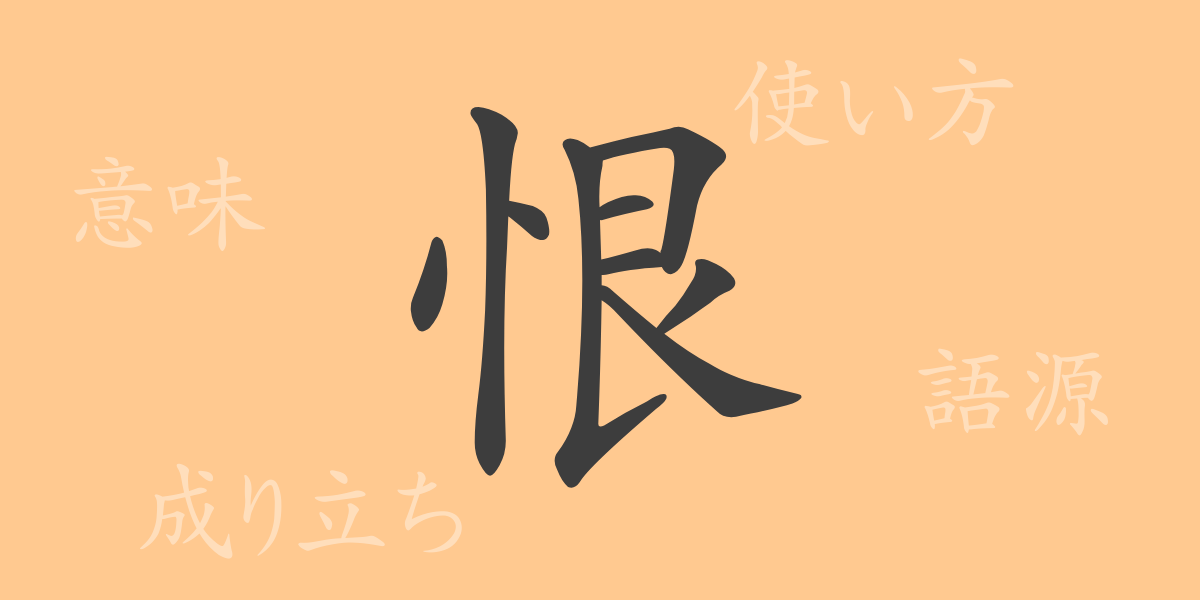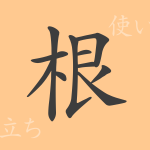Language is a mirror of culture, and each kanji holds the history and emotions of its country. “恨(うらむ, uramu)” is a commonly used kanji in Japan and plays an important role in expressing deep emotions in Japanese culture. This article explores the meaning and origin of “恨(うらむ, uramu),” and how it resonates in the hearts of the Japanese people.
Origin of 恨(うらむ, uramu)
The kanji “恨(うらむ, uramu)” comes from ancient China, originally referring to deep-seated feelings of sorrow or hatred. Etymologically, it combines “忄(りっしんべん, risshinben)” representing the heart, and “艮(ねん, nen)” indicating sound, creating a character that embodies intense inner emotions.
Meaning and Usage of 恨(うらむ, uramu)
The kanji “恨(うらむ, uramu)” expresses negative emotions such as disappointment, sorrow, and the accompanying feelings of resentment or hatred. It is often used to describe lingering regrets or grievances about past events, characterized by deep psychological pain.
Reading, Stroke Count, and Radical of 恨(うらむ, uramu)
How is the kanji “恨(うらむ, uramu)” read and structured in Japanese?
- Reading: The on’yomi (音読み) is “コン(kon),” and the kun’yomi (訓読み) readings are “うら.む(ura.mu)” and “うら.めしい(ura.meeshii).”
- Stroke count: 9 strokes
- Radical: The radical is “心(こころ, kokoro)” or “忄(りっしんべん, risshinben).”
Idioms, Phrases, and Proverbs Using 恨(うらむ, uramu)
What idioms, phrases, and proverbs include “恨(うらむ, uramu)”? Here are some examples:
- 恨み言(うらみごと, uramigoto): Words filled with resentment or bitterness.
- 恨み節(うらみぶし, uramibushi): A song sung with feelings of resentment or dissatisfaction.
- 恨の果て(うらみのはて, urami no hate): Tragedy or ruin caused by resentment.
- 恨みを晴らす(うらみをはらす, urami wo harasu): To remove the cause of resentment or hatred.
- 恨むより恨まれる(うらむよりうらまれる, uramu yori uramareru): A proverb meaning it is more painful to be resented by others than to hold resentment oneself.
Conclusion on 恨(うらむ, uramu)
Each kanji carries a rich history and culture in its background. “恨(うらむ, uramu)” is a word well-suited for expressing Japanese emotions, often used to describe the inner feelings of people. Understanding this kanji can deepen your appreciation of Japanese culture.

























